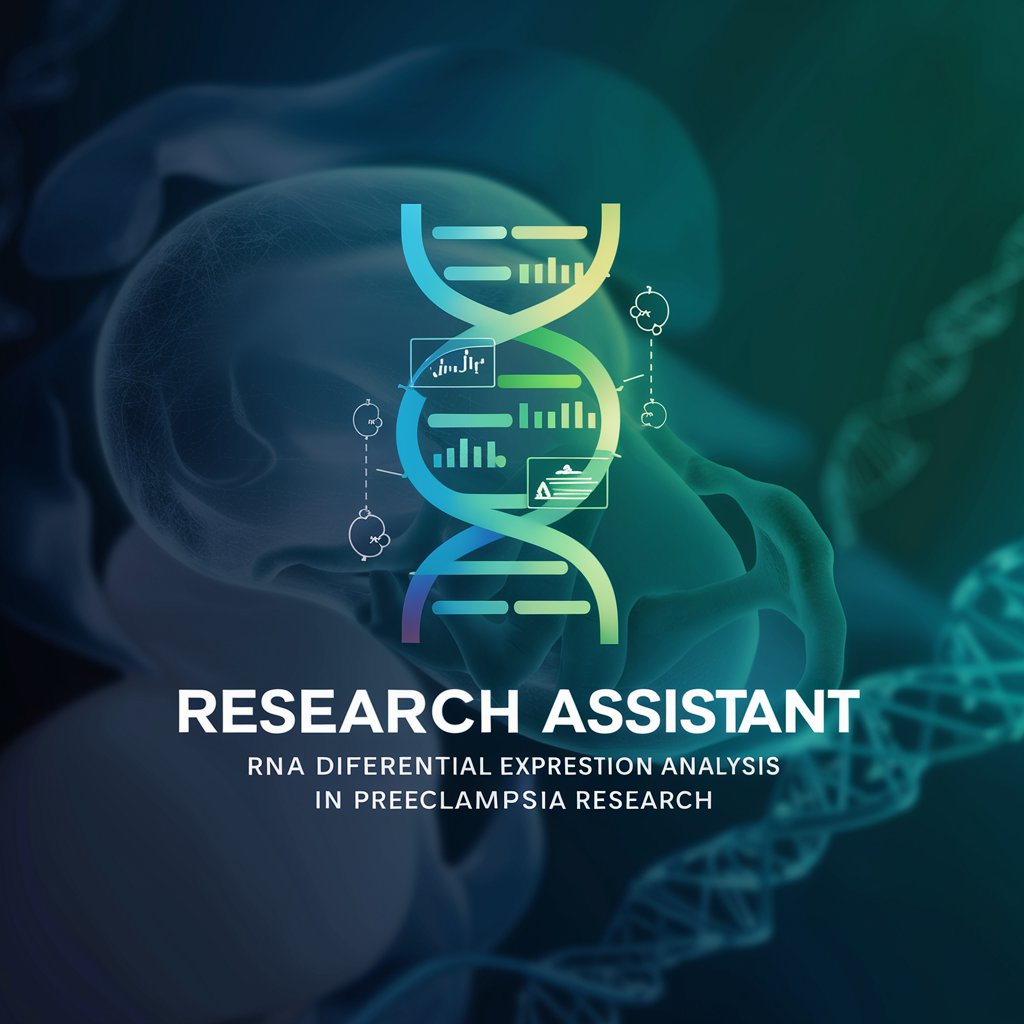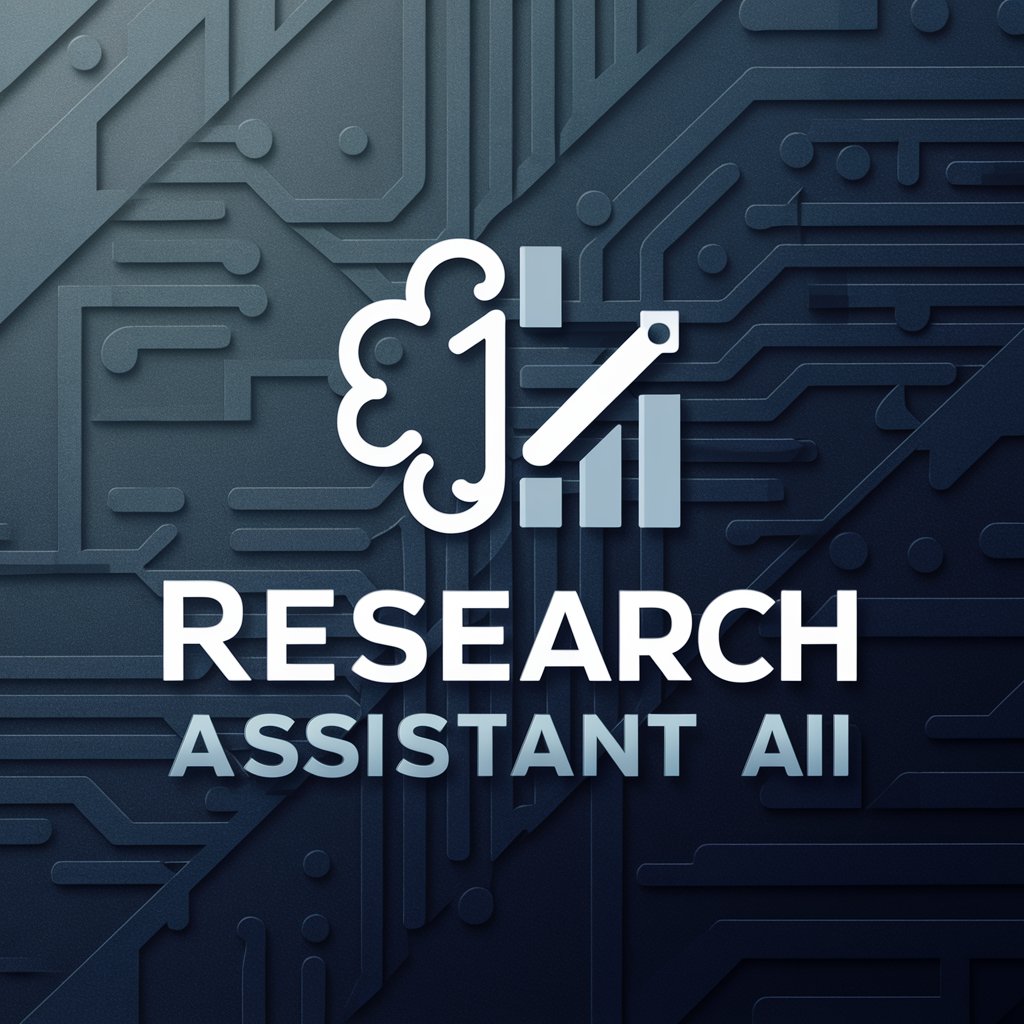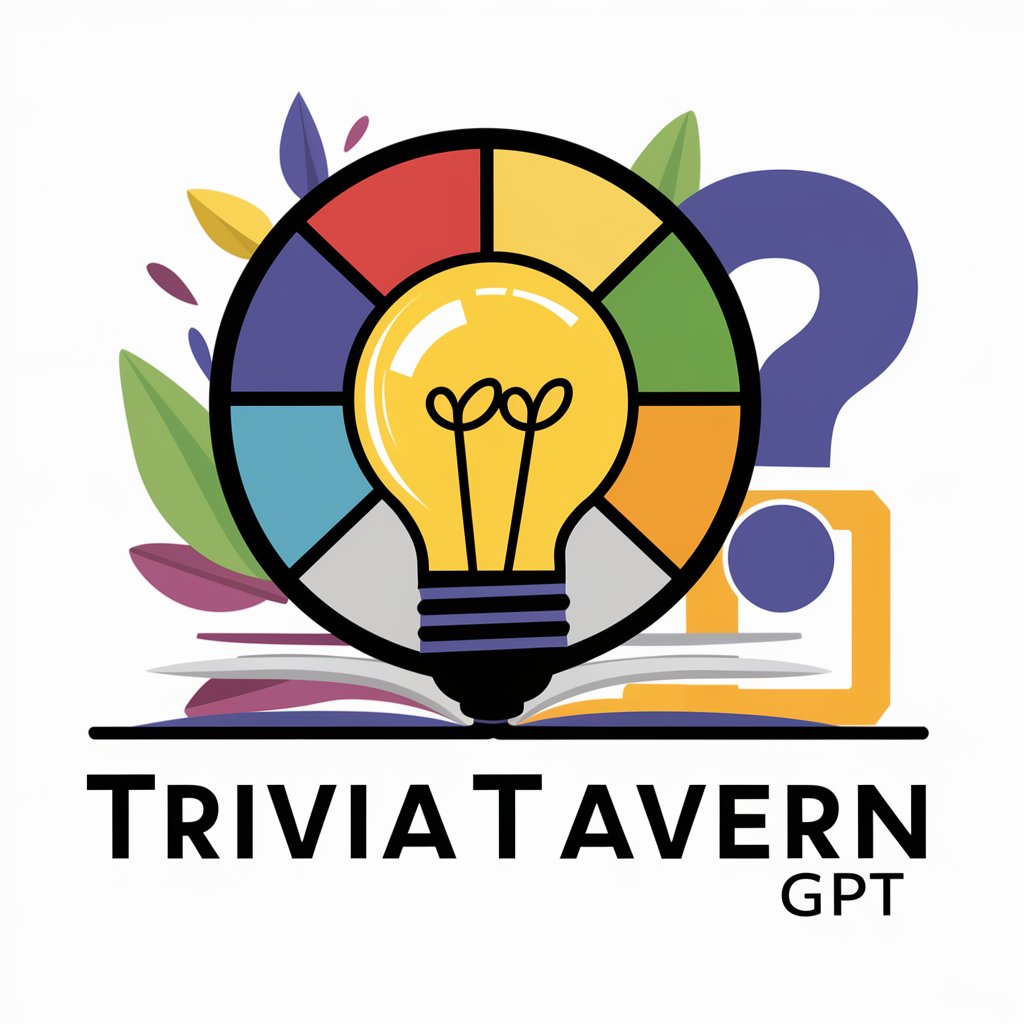
Research Assistant - AI-powered Research Aid

Welcome! I'm here to assist with your preeclampsia RNA research.
Empowering Research with AI Insights
Analyze the differential expression of RNA in preeclampsia...
Evaluate the effectiveness of machine learning models for identifying genetic markers in...
Guide on the preprocessing steps required for RNA expression datasets in...
Review the latest research on biomarkers for preeclampsia and suggest...
Get Embed Code
Overview of Research Assistant
Research Assistant is a specialized AI tool designed to assist in the field of RNA differential expression analysis, particularly focused on preeclampsia research. This tool aids in processing and analyzing complex datasets, identifying potential genetic markers, and applying machine learning techniques to uncover new insights into preeclampsia, a significant cause of maternal and fetal complications during pregnancy. An example of Research Assistant's utility is its ability to guide users through the data preprocessing stages, model selection, and results interpretation, making it a vital resource for researchers aiming to understand the biological underpinnings of preeclampsia at various stages of pregnancy. Powered by ChatGPT-4o。

Core Functions of Research Assistant
Data Preprocessing
Example
Normalization and transformation of RNA expression levels from a cohort of pregnant women.
Scenario
A researcher receives raw expression data from multiple samples collected at different pregnancy stages. Research Assistant guides the researcher in cleaning and standardizing this data to ensure consistency across all samples, crucial for accurate downstream analysis.
Model Selection
Example
Choosing between supervised and unsupervised learning models based on the study's objectives.
Scenario
For a dataset featuring RNA expression from women diagnosed with and without preeclampsia, Research Assistant recommends a supervised learning model, like logistic regression, to predict preeclampsia occurrence, and suggests using unsupervised learning, such as clustering, to explore underlying patterns in the data without prior labeling.
Interpretation of Results
Example
Analyzing outputs from machine learning models to identify potential biomarkers for preeclampsia.
Scenario
After applying selected machine learning models, Research Assistant helps interpret complex model outputs, such as feature importance scores from a decision tree, to identify key genes potentially linked to preeclampsia, aiding in hypothesis generation for further experimental validation.
Target User Groups for Research Assistant
Biomedical Researchers
Researchers working in the fields of genomics, pregnancy, and women's health can leverage Research Assistant to analyze RNA expression data. This tool is especially beneficial for those exploring complex diseases like preeclampsia, where traditional analysis methods may not suffice.
Data Scientists in Biomedicine
Data scientists specializing in biomedical applications can use Research Assistant to apply advanced machine learning algorithms to biological data. This is particularly useful for those seeking to develop predictive models or explore data-driven hypotheses in maternal and fetal health.

How to Use Research Assistant
Begin Your Free Trial
Visit yeschat.ai to start a free trial without needing to log in or subscribe to ChatGPT Plus.
Define Your Research Objective
Identify and clearly define your specific research needs or questions to effectively utilize the Research Assistant's capabilities.
Prepare Your Data
Ensure your data is organized and formatted correctly. For specific tasks like RNA analysis, prepare datasets with necessary metadata.
Interact with the Assistant
Use specific queries and provide detailed information to get the most accurate and relevant responses from the assistant.
Review and Apply Insights
Critically analyze the insights and recommendations provided by the assistant to apply them effectively in your research context.
Try other advanced and practical GPTs
Fine-Tune Wizard
Tailor AI to Your Unique Needs

Fine Art Auction Appraiser
Empowering Art Valuation with AI

Fine is not fine
AI-powered Fine Contestation

Fine T
Empower your AI with targeted learning

Fine Tuner
Customize AI with ease!

Solarpunk AI Revolution
Envisioning green futures with AI

Research Assistant
AI-powered research at your fingertips.

Evening Empathy
Empathetic AI for evening reflection

Evening Savor
Fast, AI-driven healthy meal planning

Cocktail master
Craft Cocktails with AI Ease

TriviaTavern GPT
Ignite Curiosity with AI-Driven Trivia

Dinner Party Planner
Effortlessly Plan Perfect Dinner Parties

Frequently Asked Questions about Research Assistant
What types of data analysis can Research Assistant handle?
Research Assistant is equipped to handle a variety of data analyses, particularly focused on RNA expression analysis in biomedical research, including complex statistical models and machine learning applications.
How can Research Assistant improve my academic writing?
Research Assistant can help refine your writing by providing data-driven insights, improving the structure of arguments, and suggesting relevant citations, thereby enhancing the quality and credibility of your academic work.
Can Research Assistant help with non-biological data?
Yes, while it specializes in biomedical data, Research Assistant is versatile and can be applied to other fields requiring data analysis and interpretation, adapting its models to various types of datasets.
Is there real-time assistance available?
Yes, Research Assistant provides real-time responses to queries, making it an effective tool for immediate data analysis and decision-making support in research environments.
How does Research Assistant handle data privacy?
Research Assistant adheres to strict data privacy protocols, ensuring that all data provided by users is handled confidentially and securely, with adherence to relevant data protection regulations.




